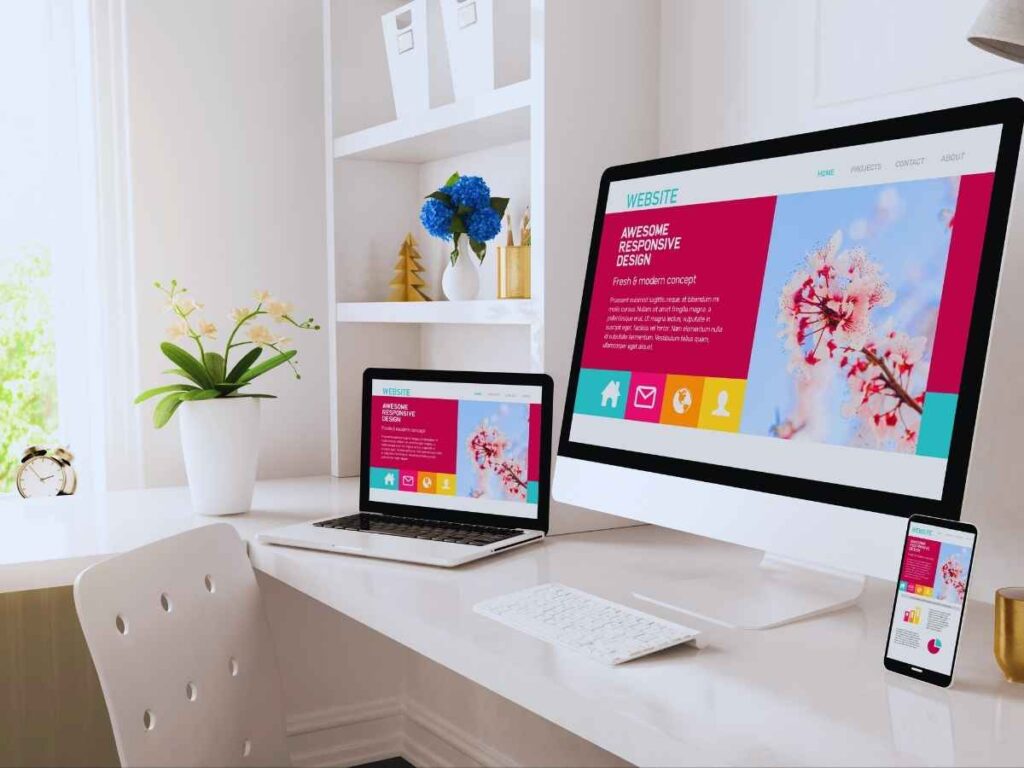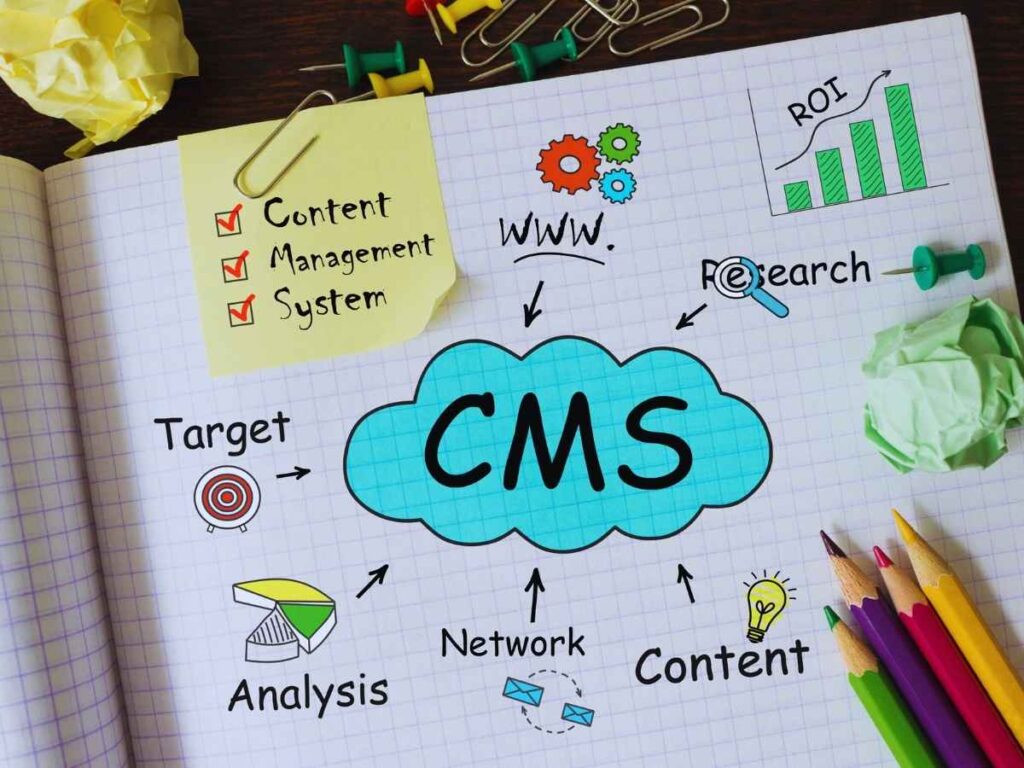Building a website can be hard and picking out the right Content Management System (CMS) should be as well. There are so many platforms in the market with different variables and functionalities, how do you know which one to choose?
Whether you’re creating a blog, an online store, or a corporate website, the CMS you select has the potential to impact everything from your users’ experience to your business growth. This guide is going to dissect each vital point, compare the best CMS platforms, and finally, give you an informed answer to simplify your website building decision.
What Is a CMS and Why It Matters
At its most basic, a Content Management System (CMS) is software that allows people to create, manage, and update website content without the need for specialized technical knowledge. Consider it the operating system of your website allowing you to easily create and edit content in a convenient dashboard.
Common Features of CMS Platforms:
- Pre-designed Themes: Create your website from templates with ease.
- Plugins/Extensions: Extend functionality such as forms, SEO components, or shopping carts.
- Built-in SEO Tools: The majority of CMS platforms assist with optimizing content for SEO.
- Integrations: Connect with other apps such as email marketing services, analytics tools, and CRMs.
Your CMS choice can also have a significant effect on how well your site scales, is protected and performs. It can simplify updates and support growth as your business changes.

Factors to Consider When Choosing a CMS
The following points will help you assess CMS systems to pick one that is most suitable for your requirements:
1. Ease of Use
- Opt for an easy-to-use interface that has drag and drop capabilities if you are not techie.
- Is there a tutorial, or supportive community you can turn to?
- A beginner-friendly toolset like Wix or WordPress could be very beneficial for small teams or individual entrepreneurs.
2. Customization and Flexibility
- Can you customise the website to align with your personal brand?
- Some CMS systems, such as WordPress and Drupal, offer high-levels of flexibility and configuration, while others, like Wix, are far more restrictive.
3. Scalability
- Can the CMS scale with your business?
- For instance, a scaling e-commerce shop might require the advanced shopping features from Shopify, while enterprise-level sites may tend towards Drupal or Joomla.
4. Cost
- On average, CMS platforms are available in two forms: 1) free options with open-source code at the low-end and 2) premium packages that could easily cost hundreds of dollars a month. Find out if it covers hosting, domain name, plugins and support fees.
5. Security
- Does the VDR platform offer frequent updates and strong security capabilities, such as two-factor authentication and firewalls? This is important to protect sensitive information.
6. Support for Teams
- Some CMS systems have features (eg user roles or collaboration tools) more appropriate for a team working to manage a given body of content together.
CMS Options Compared
Here’s a closer look at top CMS platforms, their use cases, and how they compare:
1. WordPress
- Best For: Blogs, small businesses, and scalable websites.
- Pros:
- Highly customizable with thousands of themes and plugins.
- Excellent for SEO (integrates with tools like Yoast SEO).
- Active community and developer resources.
- Cons:
- A moderate learning curve for beginners.
- Requires regular updates and maintenance.
2. Wix
- Best For: Portfolios, small businesses, and beginners.
- Pros:
- Extremely user-friendly with a drag-and-drop builder.
- All-in-one solution (includes hosting and security in plans).
- Cons:
- Limited design flexibility for advanced users.
- SEO tools aren’t as robust as WordPress.
3. Shopify
- Best For: E-commerce websites and online stores.
- Pros:
- Built-in shopping cart and secure payment integration.
- Optimized for selling products and managing inventory.
- Cons:
- Limited for non-eCommerce sites.
- Monthly costs can add up, especially with paid apps.
4. Drupal
- Best For: High-traffic, complex, enterprise-level websites.
- Pros:
- Advanced features and unparalleled security.
- Highly flexible for developers.
- Cons:
- Requires coding knowledge.
- Steeper learning curve than most CMS platforms.
5. Joomla
- Best For: Advanced users seeking a middle ground between WordPress and Drupal.
- Pros:
- Flexible and scalable for a variety of websites.
- Multilingual support built-in.
- Cons:
- Learning curve for beginners.
- Smaller library of extensions compared to WordPress.

Comparison Table for Quick Reference:
| Platform | Best For | Ease of Use | Flexibility | SEO Capabilities |
| WordPress | Blogs, Small-Medium Businesses | Moderate | High | Excellent |
| Wix | Portfolios, Small Businesses | High | Low | Moderate |
| Shopify | E-commerce Websites | High | Moderate | Good |
| Drupal | Enterprise Websites | Low | Very High | Excellent |
| Joomla | Advanced Users, Multilingual Sites | Moderate | High | Good |
Open-Source vs Proprietary CMS
When choosing a CMS, you’ll need to decide between open-source and proprietary platforms.
Open-Source CMS
Examples: WordPress, Drupal, Joomla.
- Pros:
- Free to use and highly customizable.
- Large developer communities for support.
- Cons:
- Requires separate hosting and maintenance.
- Security depends on proper updates and configurations.
Proprietary CMS
Examples: Wix, Shopify, Squarespace.
- Pros:
- User-friendly and all-in-one (hosting, updates, and security included).
- High reliability and support.
- Cons:
- Limited customization and control.
- Can be costly.
If you need full control, go for open-source. For simplicity and convenience, proprietary may be a better choice.
SEO Considerations When Choosing a CMS
SEO (Search engine optimization) is an important factor in the recipe for a successful website. Pick an SEO-friendly CMS with these capabilities:
- Mobile Responsiveness: Your site should look great on any device.
- Clean Code: CMS systems such as Drupal are famous for cleaner code.
- SEO Plugins: Plugins like Yoast (if you’re using WordPress) or built-in SEO tools (like those on Shopify) simplify the optimization process.
- Sitemaps and Meta Tags: Verify the CMS allows sitemaps, page metadata, alt image tags, and structured data.
In terms of SEO, WordPress and Drupal are some of the best because they can be customized a lot, and they are easy to use due to their robust plugins.
Use Case Examples
- Example 1 – Portfolio Site:
A photographer opts for Wix due to its simple drag-and-drop editor.
- Example 2 – Content-Heavy Blog:
A writer chooses WordPress for its flexibility and SEO-friendly tools.
- Example 3 – Online Store:
A growing e-commerce store selects Shopify to manage products, payments, and orders.
- Example 4 – Enterprise Site:
A government organization picks Drupal for its top-tier security and complex data management.

Final Checklist to Make Your CMS Decision
Use this quick checklist to ensure you’re making the right choice:
- ✅ Is the CMS easy for your team to use?
- ✅ Does it fit with your business objectives (such as blog, store)?
- ✅ Will it scale as your traffic and content needs grow?
- ✅ Is it affordable (cost of hosting + addons)?
- ✅ Does it include important functionality such as SEO tools or integrations?
Start Building Your Perfect Website Today
Selecting the best CMS isn’t merely a matter of convenience; it’s an investment in the future of your website. They each have their own specific needs and learning curve, though, so weigh these things along with your desired features and price before choosing what’s right for you.
If you’re still unsure, contact us for a free consultation, and we’ll guide you in getting your CMS and your web targets!
Final Thoughts
The perfect CMS can make your website feel empowered and provide you with the tools to create, manage, and grow your online presence without too much effort. By reviewing your requirements and getting a sense of what each platform can do, you’ll have a better of idea of which one to choose. After all, the best CMS is the one that serves your needs and can help bring your vision to life. Begin your website-building journey now, and see your digital dreams become a reality!





